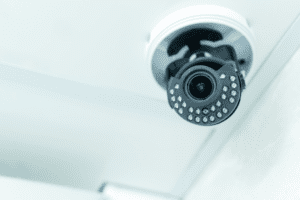Can Employers Record Employees in the Workplace?
Reading Time: 4 minutes
In short, yes, employers can record employees in the workplace if certain circumstances are present. In today’s digital age, employers can identify a myriad of reasons to record employees in their workplaces. While surveillance and recording can have legitimate purposes, it is essential for employers to navigate this territory carefully to avoid violating privacy laws and employee trust. In this blog post, we will discuss the legal issues raised when recording employees in the workplace and offer best practices for employers to ensure they are in compliance with the law while maintaining a productive and secure work environment.
Understanding the Law
In Florida, the law regulating the recording of others is covered under Section 934.03, Florida Statutes, which prohibits the interception and disclosure of wire, oral, or electronic communications (encompassing audio and video recording) without the subject’s consent. By recording employees, employers would be “intercepting” at least the oral communications of their employees, thereby coming under the regulation of Section 934.03. Violations of Section 934.03 can result in being found guilty of a felony of the third degree, punishable as provided in Sections 775.082, 775.083, 775.084, or 934.41, Florida Statutes.
The “Reasonable Expectation of Privacy” Standard
One crucial factor in determining whether recording employees is violative of Section 934.03 is whether the non-consenting subject had a “reasonable expectation of privacy.” Two significant cases shed light on this standard:
1. Cohen Bros., LLC v. ME Corp.,872 So. 2d 231 (Fla. 3d DCA 2004): In this case, the court ruled that business professionals involved in a conference call to discuss business matters did not have a reasonable expectation of privacy. Therefore, the recording of the call was not considered a violation of Florida law.
2. Morningstar v. State, 428 So. 2d 220 (Fla. 1983): The Florida Supreme Court held that a shop owner recorded by the police without a warrant did not have a reasonable expectation of privacy in his office. Consequently, the recording was not in violation of Florida law.
In sum, the particular circumstances of case will be evaluated to determine whether the individuals recorded had a reasonable expectation of privacy. The more public the setting and the less personal the context, the less likely such individuals had a reasonable expectation of privacy.
Furthermore, cases from other jurisdictions contain analysis focused on the type of monitoring equipment (stealthy, secret/hidden cameras vs. large conspicuous cameras) and what specific locations in the office were recorded (private offices with blinds vs. conference rooms or lobby areas). Generally speaking, using conspicuous recording devices that are noticeable will decrease an employee’s reasonable expectation of privacy. Additionally, areas which are more public than others (i.e. the conference room) decrease a reasonable expectation of privacy.
Best Practices for Employers
To ensure you are on the right side of the law and respect your employees’ privacy, consider these best practices:
1. Obtain Consent: The safest avenue to help avoid potential legal issues related to recording employees is obtaining clear and informed consent directly from employees. There are numerous ways consent could be obtained, which can be incorporated into company operations procedures with the help of knowledgeable legal counsel.
2. Use Noticeable Equipment: Employ conspicuous recording devices that are clearly visible to employees. Hidden or “stealthy” cameras may be more likely to raise privacy concerns.
3. Consider Location: Be mindful of the specific locations within your workplace that you intend to record. Private offices with blinds may carry a higher expectation of privacy compared to common areas like conference rooms or lobbies.
4. Educate Employees: Inform your employees about the presence of recording devices and the purposes behind them. Transparency can foster a sense of trust and respect.
5. Review State and Federal Laws: Familiarize yourself with both state and federal laws related to workplace recording, as they may vary. Consultation with skilled legal counsel can help ensure your practices align with legal requirements.
Conclusion
Recording employees in the workplace is a delicate matter that requires careful consideration of privacy rights and legal obligations. By following best practices, obtaining consent when necessary, and maintaining transparency, employers can strike the right balance between surveillance and respect for their employees’ privacy. It’s essential to stay informed about evolving laws and adapt your policies accordingly in consultation with competent legal counsel to create a safe and compliant work environment.


